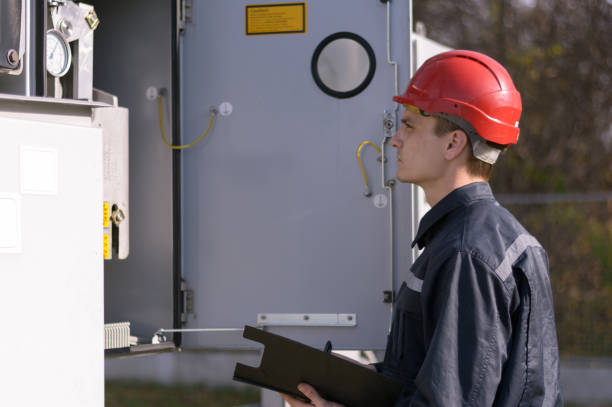Understanding Essential Propane Terminology for Safety and Compliance

It is imperative to be conversant with basic propane jargon while speaking with coworkers and customers in the propane sector. Maintaining compliance and safety requirements is facilitated by adequately using these terminologies.
Out of gas
The National Fire Protection Association (NFPA) 54, 2021 edition and NFPA 58, 2020 edition do not use the phrase “out of gas.” However, it commonly refers to a condition when the propane system does not have enough gas pressure to sustain appliances and pilots.
Interruption of service
The “Interruption of Service” is addressed by NFPA in Section 4.2 of NFPA 54, which provides instructions for notification and work interruptions. After a service outage, the system must go through a leak check to find any potential leaks, as per Section 8.2.3. Although the code does not give particular examples, interruptions in service frequently occur when a container valve is closed, the system is depressurized, runs out of gas, or needs to be repaired.
Leak check
According to Section 3.3.43 of NFPA 58, a leak check is an operation carried out on a gas piping system to confirm its integrity and ensure it is leak-free. When to conduct a leak check for vapor systems is described in Section 6.17 of NFPA 58, and Annex A.6.17.2 references Annex L for suggested techniques. Before restoring an LP gas system, several leak check methods are described in Annex L.1.1.
Pressure test
A pressure test is carried out to confirm the gastight integrity of gas piping after installation or modification, according to NFPA 58’s Section 3.3.64.
It’s crucial to distinguish between a pressure test and a leak check. According to Annex A.6.17.2, a leak check assures that the system is free of leaks that could be dangerous. At the same time, a pressure test evaluates the integrity of the piping system during installation or modification.
A leak check is necessary when the gas system is turned on, after it has been cut off, or following an out-of-gas situation, whereas a pressure test is necessary for new system pipework or upgrades. Before using any appliance or piece of equipment, performing a leak check and checking the appliance connectors and gas controls is essential.
Safety and compliance improvements for propane
Propane firms can use tools like Tank Spotter to decrease risks, increase compliance and safety, and better manage service and sales. To reduce risks and boost operational effectiveness in the propane business, TankSpotter.com offers solutions and services. Companies can also contact PropaneSafetyPro.com, which offers Operations & Maintenance Manuals and Remote Technical & Compliance Support, for safety training or advice.
Propane sector workers may maintain compliance, improve safety procedures, and offer top-notch customer service by comprehending and using appropriate terminology.













